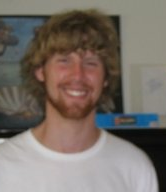Difference between revisions of "Andy Watkins"
fix>QBWikiBot |
Charles Hang (talk | contribs) m |
||
| Line 37: | Line 37: | ||
[[Category:Players active in 2008]] | [[Category:Players active in 2008]] | ||
[[Category:Players active in 2009]] | [[Category:Players active in 2009]] | ||
| + | [[Category: Players active in 2010]] | ||
[[Category:High school players active in 2007]] | [[Category:High school players active in 2007]] | ||
[[Category:High school players active in 2006]] | [[Category:High school players active in 2006]] | ||
Revision as of 00:27, 19 February 2010
| Andy Watkins | |

| |
| Noted subjects | Science |
| Current college | Harvard (2008-) |
| Past colleges | None |
| High school | Shady Side (2003-2007) |
| Stats | HDWhite • NAQT |
"Crazy" Andy Watkins is a quizbowl player for Harvard. He is much beloved by quizbowl for writing seventy million questions over the past twelve months. He also has a reputation for posting, occasionally incomprehensibly, a lot on hsquizbowl.org. He was the leading scorer on the Harvard B/D2 team at both the NAQT ICT and ACF Nationals in his freshman year. He is currently the President of the Harvard College Bowl Team.
High School Career
Andy was on a Shady Side team that impressed many for its ambition when it attended the 2006 ECSO; this was before the time when elite high school players became regular attendees at college-level events.
Editing Career
Andy was a member of the editorial staff for the following 2008/2009 season tournaments:
Andy will be editing the following 09-10 tournaments:
Controversial philosophy
Andy has been accused of platonic idealism for reasons unclear.
Andy's philosophy on studying for quizbowl is that you need to study really obscure things to beat good players to good questions. Therefore, much of his knowledge base is actually stuff that rarely comes up. This has also led to Andy's reputation as among the worst judges of difficulty appropriateness among active writers of good questions.
(The above is better put forth as "you need to spend a lot of time learning early clues, even at the expense of spending as much time learning late clues," which sounds a lot less silly and better resembles his original exposition of this principle.)
(Andy does, however, believe that having written too-hard high school questions, reasonable regular difficulty questions, and too-hard nationals-level questions has given him better canon sense and despite his bizarre and mostly ineffective studying strategies, he'll be able to write good questions for future tournaments: see for example his difficulty-appropriate material for HAVOC.)